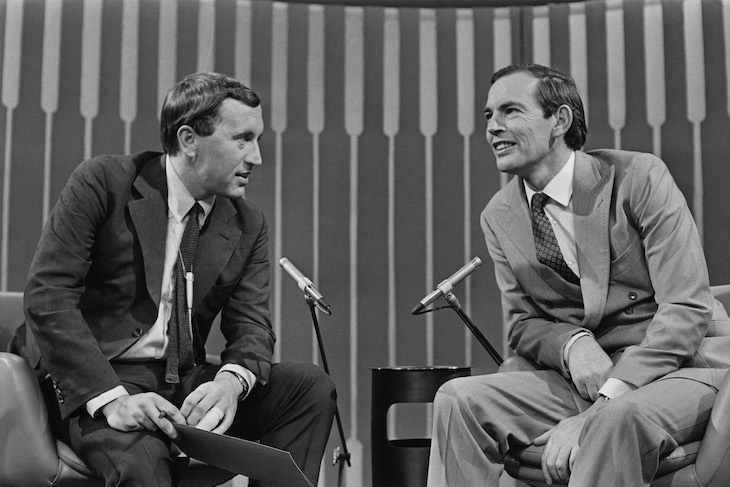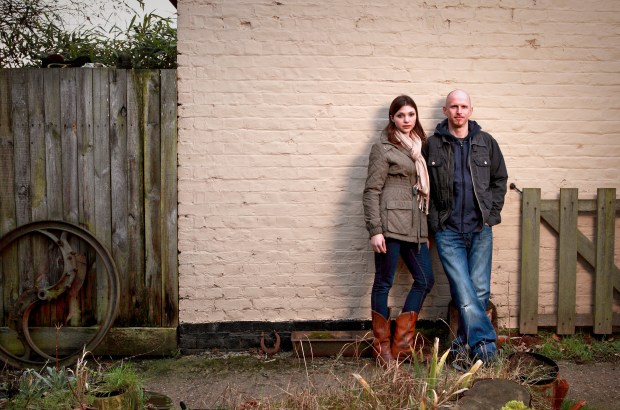It’s been heart week on Radio 4, celebrating the anniversary of the first ‘successful’ heart transplant in 1967, which was performed, controversially, by Dr Christiaan Barnard in South Africa on a patient called Louis Washkansky (who survived the operation and lived for 18 days). The heart, that mysterious, almost mystical organ, is freighted with such cultural significance that back then there were some who thought such feats of medical skill were tampering dangerously with our humanity. Change the heart, and the person within would never be the same. Now, though, as Giles Fraser discovered in his series This Old Heart of Mine (produced by Victoria Shepherd), the official definition of death is determined not by the persistent thump of that heartbeat but by whether the brainstem is dead. The heart is nothing more than a pump. Vital, maybe, but only an essentially mechanical device; nothing emotional about it.
Earlier this year Fraser underwent major heart surgery and in his five short programmes he tried to defy this truth by looking at how not just his arteries have been affected but also his thoughts, his feelings, his beliefs. There was no health warning attached to the programme. You know the kind of thing: ‘Listeners are warned they might be upset by what follows…’ But this was strong stuff from the Canon (best known for scything through questions of conscience on The Moral Maze), and most definitely not for the faint-hearted.
He goes to meet the surgeon at St Thomas’ Hospital in London who performed his quadruple heart bypass. Fraser wanted to know what it felt like for the surgeon to hold his heart and literally massage it back to life. ‘You have to be a good sewer,’ said the surgeon, ‘as there’s not much room for error.’ (The bypass is stitched into the pumping system.) Mr Avlonitis had just explained how he began work by cutting through the skin on Fraser’s chest, then into the soft tissue underneath, before sawing through the bone to get to his heart and the four damaged arteries (blocked, Fraser was told after being admitted to A&E with chest pains, 90 per cent, 90 per cent, 70 per cent and 100 per cent).
‘What was it? A circular saw?’ Fraser asked, after hearing the kind of details about his operation that would make most normal people blench.
‘No. It was oscillating,’ said the surgeon, quietly.
Meanwhile someone else was cutting through Fraser’s leg to get to the vein that would be used to provide the bypass material.
‘The heart. It’s a pump. That’s all it is for you,’ said Fraser to his surgeon. To which Avlonitis replied, ‘Once we can make an artificial heart, it can easily be replaced.’
For those in search of a less clinical dissection of heart trouble, Michael Blastland’s The Skipped Beat on Monday night (produced by Kate Taylor) took a more poetic approach. He was diagnosed with arrhythmia some years ago and has become intensely aware of changes to his heartbeat, and to the way this makes him feel. ‘The heart rhythm is such a violent thing,’ he says. When it goes wrong, the turbulence in his chest is so strong he’s left ‘utterly unhinged’. He can’t think straight; he can’t sit still. ‘This beast heaves around, swells and pushes, contracts and thumps. It’s a monster.’
He talks to others who have experienced cardiac arrest, whose beating heart has stopped, that rhythmic pulse, known since before birth, disrupted, broken. For them, the pulse delivers more metaphysical messages, says Blastland. The heartbeat’s rhythm is part of who we are. We try to replicate it in music, through walking, in poetry. Blastland has even had a trace of his own sinus rhythm framed and hung on the wall. It’s ‘one of the most beautiful things’.
With the deftness that now characterises the Radio 4 schedule, Saturday afternoon’s drama was a repeat of a play about Robert Mugabe and how he came to power. God’s President: Mugabe of Zimbabwe by Kwame Kwei-Armah (and produced by Julia McKenzie) was first heard in 2010 and celebrated the 30th anniversary of that country’s independence. It tells the story of how that was achieved through the lengthy negotiations held at Lancaster House in London between 10 September and 15 December 1979. Ian Smith, Bishop Muzorewa, Joshua Nkomo and Mugabe were all involved, seeking to safeguard their own interests against the wishes of the British government, represented by Lord Carrington and his sidekick at the Foreign and Commonwealth Office, Robin Renwick.
It’s rather a dry subject — the toing and froing between hotel rooms and conference suite as the delegates battled out their differences, with Carrington and Renwick always in the background, seeking to influence what happened and ensure the right outcome. But the timing, just as Zimbabwe has a chance to redeem itself after the fall of Mugabe, and the writing — stylish, refined, persuasive — brings it all to life through character, showing how Mugabe emerges as the cleverest and most cynical of them all. ‘This is war,’ says Mugabe. ‘When faced with extinction, it’s in man’s nature to scrape to the bottom of his own humanity in order to preserve himself.’
Got something to add? Join the discussion and comment below.
Get 10 issues for just $10
Subscribe to The Spectator Australia today for the next 10 magazine issues, plus full online access, for just $10.
You might disagree with half of it, but you’ll enjoy reading all of it. Try your first month for free, then just $2 a week for the remainder of your first year.














Comments
Don't miss out
Join the conversation with other Spectator Australia readers. Subscribe to leave a comment.
SUBSCRIBEAlready a subscriber? Log in